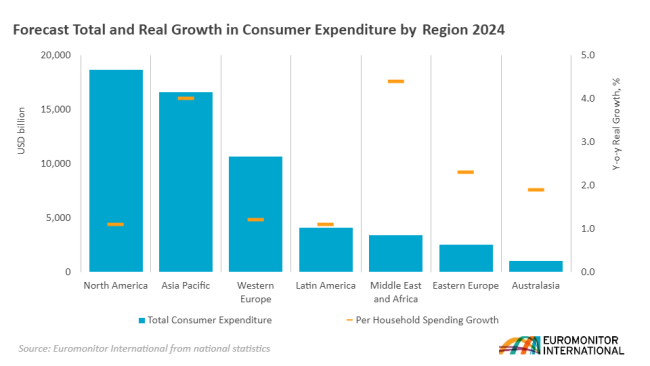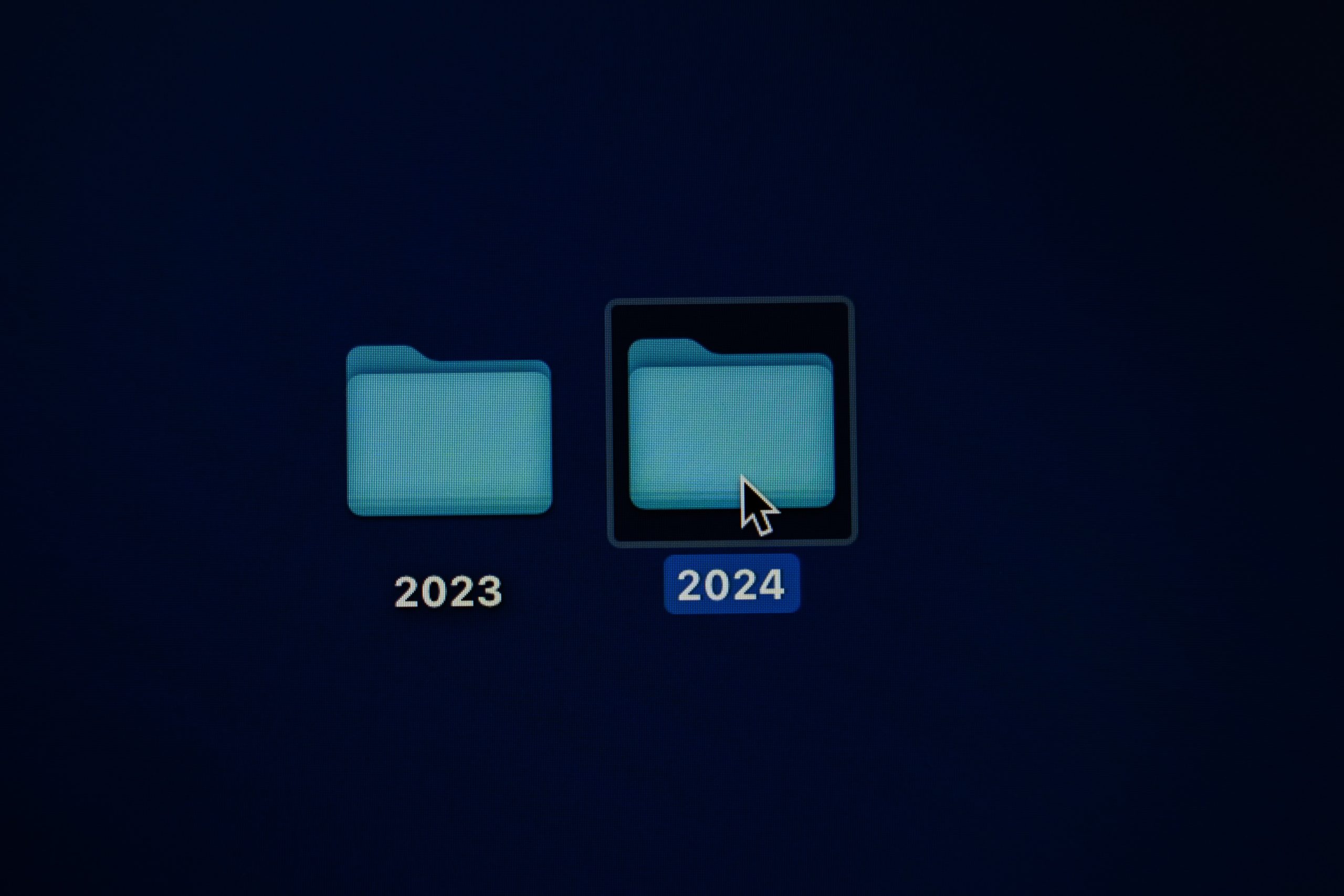As we approach 2024, the consumer market is characterized by significant uncertainty. While overall inflation is expected to decrease, core inflation, which excludes volatile elements like food and energy, is predicted to remain high. This situation could lead central banks to maintain elevated interest rates for an extended period, impacting both businesses and consumers negatively.
Household disposable income growth is anticipated to slow down. The prolonged period of high interest rates, affecting various forms of consumer credit, combined with modest income growth, is likely to result in consumers being more cautious with their spending in the upcoming year.
In the Asia Pacific (APAC) region, the major markets in terms of consumer spending — China, India, and Japan — are also the world’s top largest markets. Real consumer spending in APAC is expected to grow by 4.0% in 2024, surpassing the global average of 2.2%. This growth is driven by countries like Thailand, Malaysia, India, and Vietnam.
 Sectors such as hotels and catering, transport, and health goods are set to benefit from this growth, fueled by expanding middle classes, rising incomes, and urbanization in these areas. Notably, consumers in their 50s, who are among the highest earners, are a key demographic for businesses to focus on.
Sectors such as hotels and catering, transport, and health goods are set to benefit from this growth, fueled by expanding middle classes, rising incomes, and urbanization in these areas. Notably, consumers in their 50s, who are among the highest earners, are a key demographic for businesses to focus on.

Unsplash
Both in APAC and globally, there’s a trend towards smaller household sizes, with a significant increase in single-person households, which are expected to make up 21% of all households in 2024. This trend is influenced not only by factors like delayed marriage and ageing populations but also by current economic uncertainties and concerns over living costs, leading to hesitancy in committing to relationships and parenting. Businesses need to adapt their offerings to cater to these smaller and single-person households, especially in more advanced economies.
Consumer spending behavior in 2024 is expected to be marked by caution and selectivity, with a focus on reducing unnecessary expenses while maintaining quality of life. Despite seeking affordability, consumers also value overall quality, health, new experiences, and joy in their purchases. Many are finding small indulgences important for personal happiness. To manage costs while maintaining living standards, consumers are adopting strategies like buying durable, high-quality items, repairing instead of replacing, and preferring renting over owning.
A notable trend for 2024 is the emergence of ‘Value Hackers,’ who seek innovative ways to maximize their budgets. This includes opting for cheaper alternatives or “dupes,” leveraging credit card rewards, and choosing premium private label products. Additionally, the rise of ‘Deinfluencers’ on social media, who criticize overhyped products, reflects a shift in consumer attitudes.

Unsplash
For businesses preparing for the challenges and opportunities of 2024, success hinges on understanding and adapting to these changing consumer preferences. Companies must focus on delivering value and affordability, connecting deeply with consumers, and aiding them in making decisions that add value to their lives while being economical.
Source: https://www.euromonitor.com/article/consumers-in-2024-uncovering-opportunities-amid-uncertainty










